An Evening For Honoring Academic Excellence
By Rebecca GoldfineIn her welcome, President Safa Zaki started by thanking faculty and staff, and she acknowledged the significance of the night. “We are here to celebrate the extraordinary work of our students this past year,” she said. "Our Honors Day celebration focuses specifically on departmental and program prizes."
Dean for Academic Affairs Jennifer Scanlon then introduced the event’s keynote speaker, Assistant Professor of Gender, Sexuality, and Women’s Studies Angel Daniel Matos.
In accordance with Bowdoin tradition, the winner of the previous year’s Sydney B. Karofsky Award for Junior Faculty delivers the event's address. The Karofsky prize* is presented to an outstanding junior faculty member who demonstrates a great ability to impart knowledge, inspire enthusiasm, and stimulate intellectual curiosity.
Matos, who joined Bowdoin's faculty in 2020, is an interdisciplinary scholar who teaches and writes in the fields of youth literature, queer studies, and screen culture, with a particular interest in queer young adult literature and culture, teen cinema, video games, Latinx cultures, and theorizations of time and space.
“Angel says his identity as a writer, teacher, and researcher is informed significantly by his experiences as a queer Puerto Rican and first-generation student and scholar," Scanlon said.
His talk, “Revisiting the Inner Child,” questioned why our dominant culture is so adamant about cleaving childhood from adulthood, encouraging us to leave behind youthful feelings, practices, and dreams to facilitate a smooth transition to “successful adulthood.”
He invited students to consider re-engaging with some of these discarded practices, values, and beliefs in a way that might “create new ways of living, thriving, and succeeding in a broken world.”
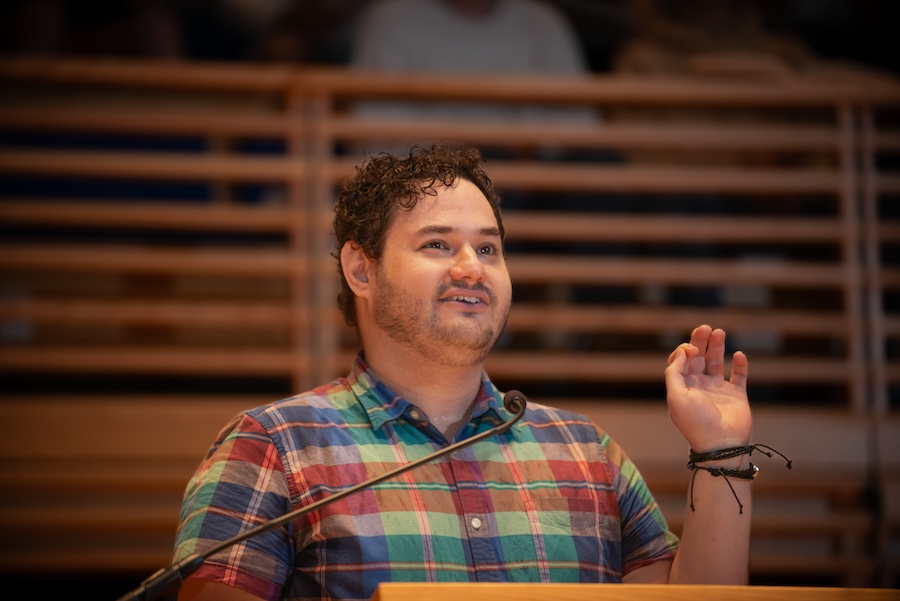
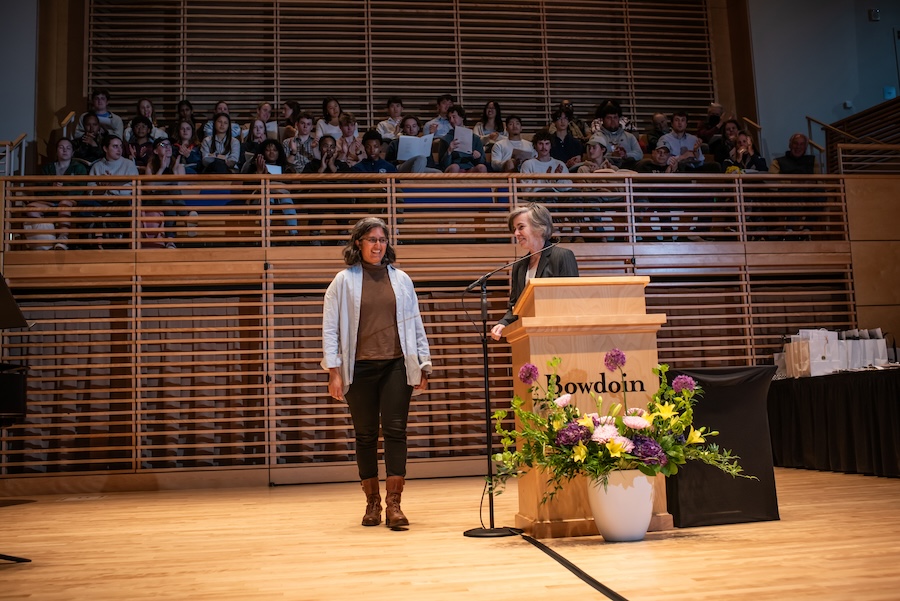
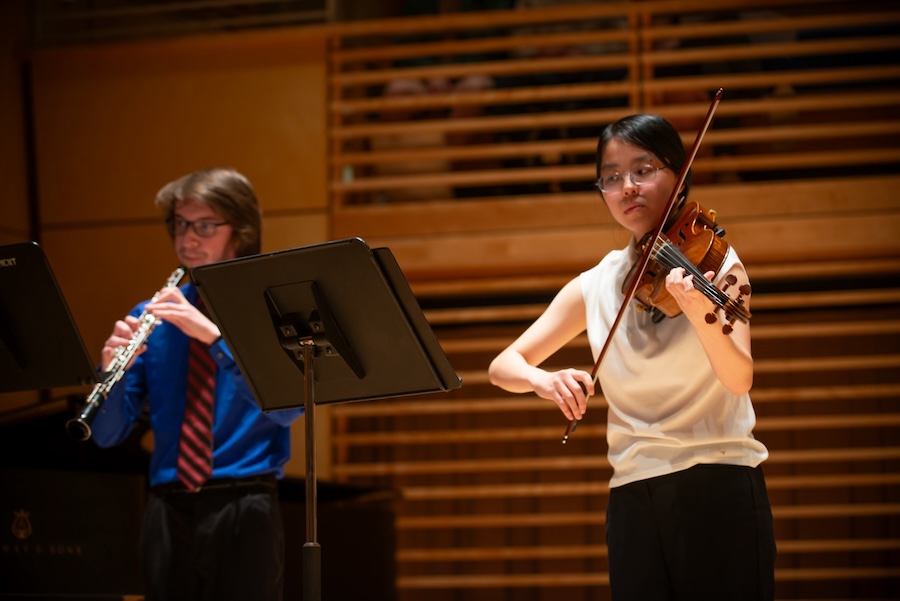
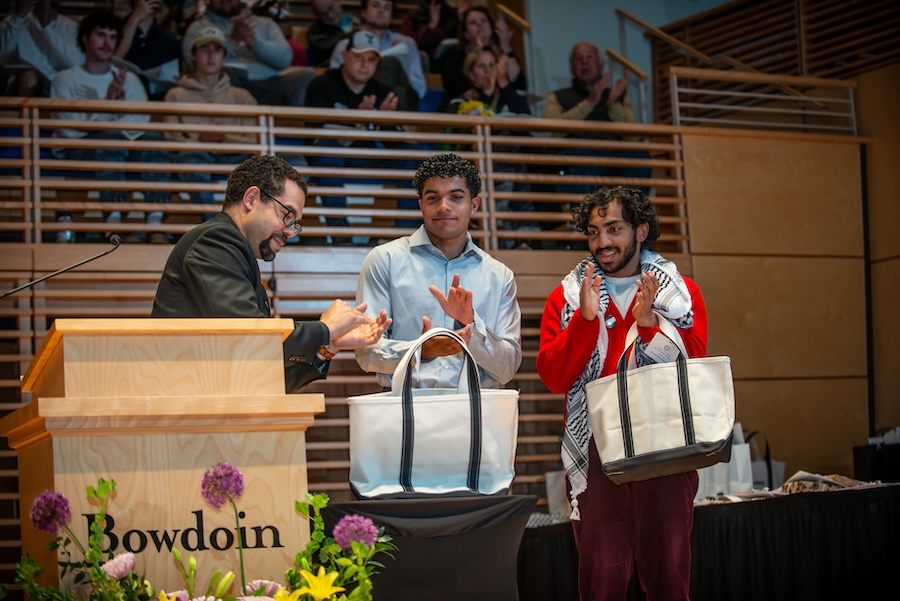
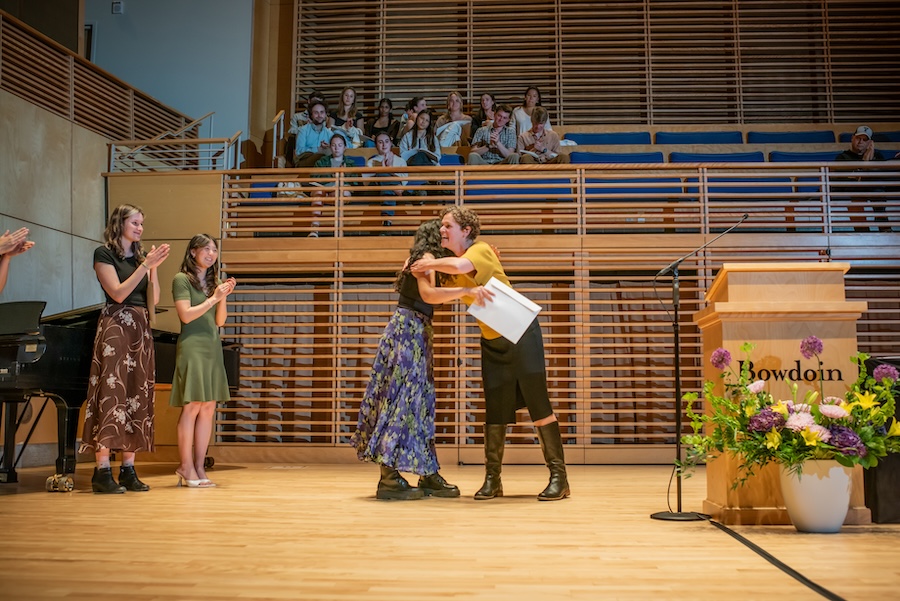
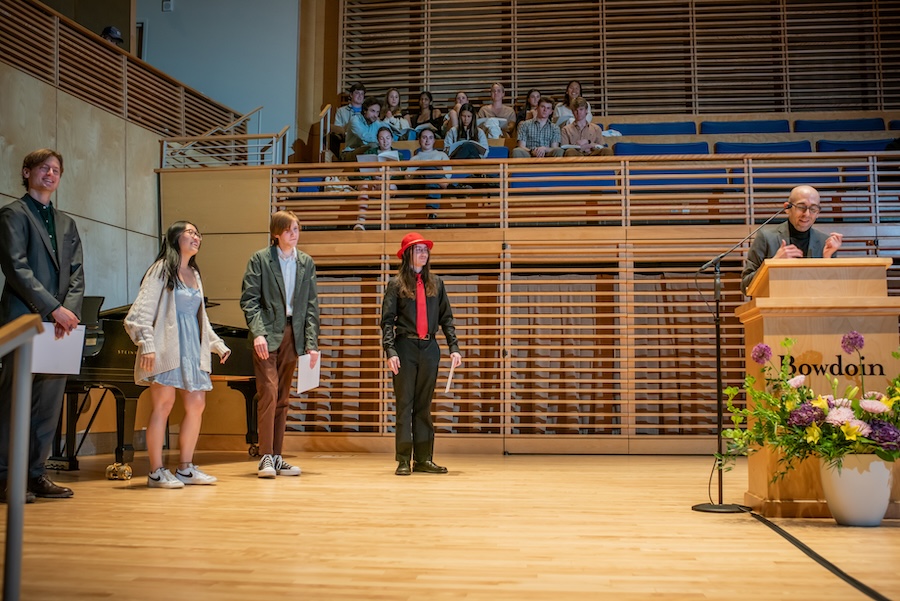
Matos admitted that as a young man, he also followed the expected trajectory to becoming a grown-up. He stopped playing video games while earning his PhD. He threw away his old journals, letters, and notes, including a lot of poetry he wrote as a teenager. It was all so emotional.
“There was an excess of emotion. I didn’t want to be that person anymore. I had to be a serious, driven, and successful adult,” he said. “But where does this apprehension come from? Why is there so much pressure to approach our childhood as a life stage that must be left behind?”
He also pointed out problematic connections between attitudes toward queerness and childhood—“narratives that insist queer folk are people experiencing arrested development or are overly attached to their childhood.”
He regrets the division he forced on himself in his efforts to mature. “I spent so much time trying to create a separation of my past and present self that it became difficult to see how my excesses matter, how they pose a challenge, and how there were aspects associated with these surpluses that might be worth holding onto,” he said.
Acknowledging that he tends to avoid seeking concrete answers in his classes, he left his student audience with a suggestion. “Take a moment and think: what were you forced to sacrifice in the name of adulthood? Why were you forced to sacrifice it? Why are fun and joy aligned with childishness? Why are knowledge and experience aligned with adulthood? What happens to your world when you open up your life to think and feel in ways you were told were unruly, immature, and childish—and how do power and control inform these dynamics?”
“There are practices and emotions that we have neglected or forgotten, which are worth revisiting and holding onto. Life is not a 'straight' and linear journey with a predefined goal or objective but rather an ever-evolving process of growth and transformation. We don’t grow up, but rather, we perpetually grow and never stop growing.”
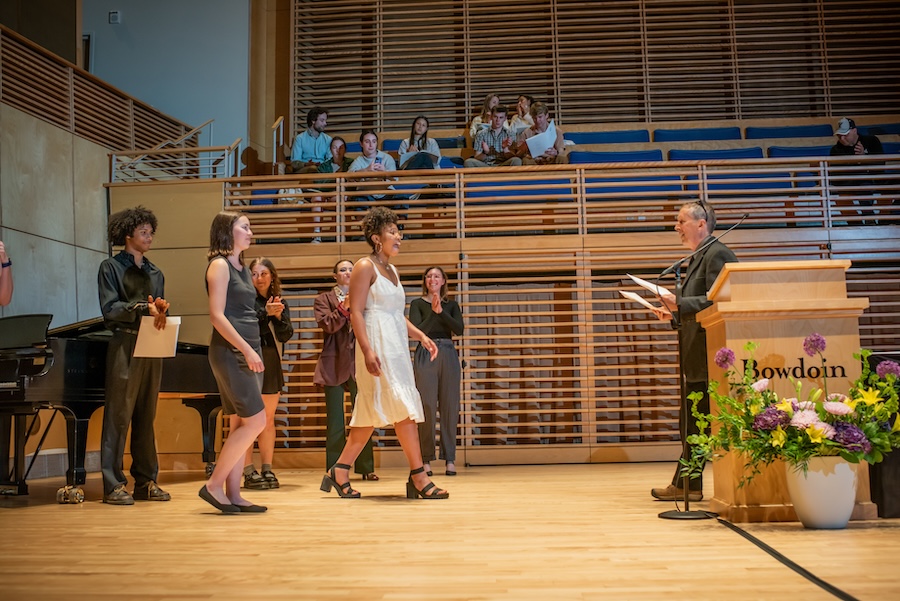
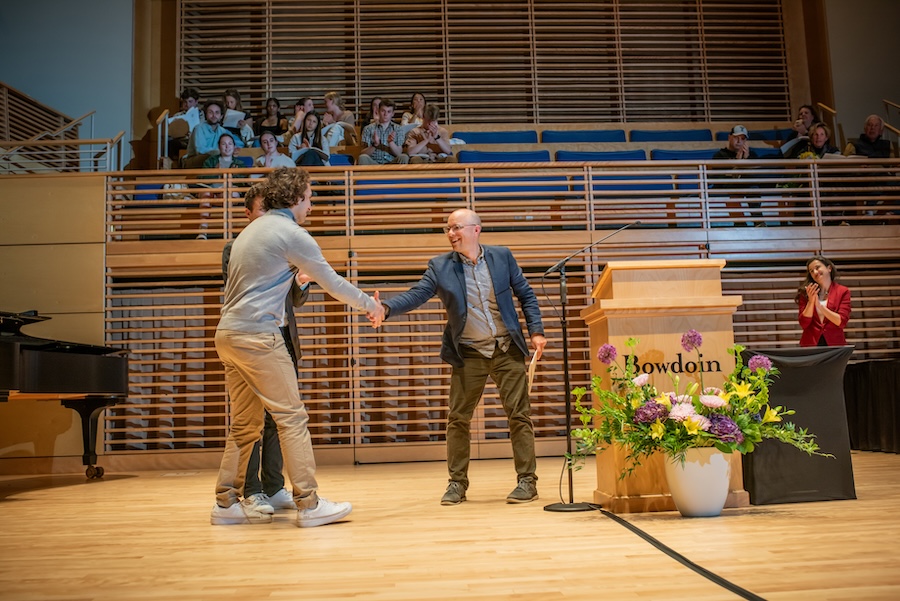
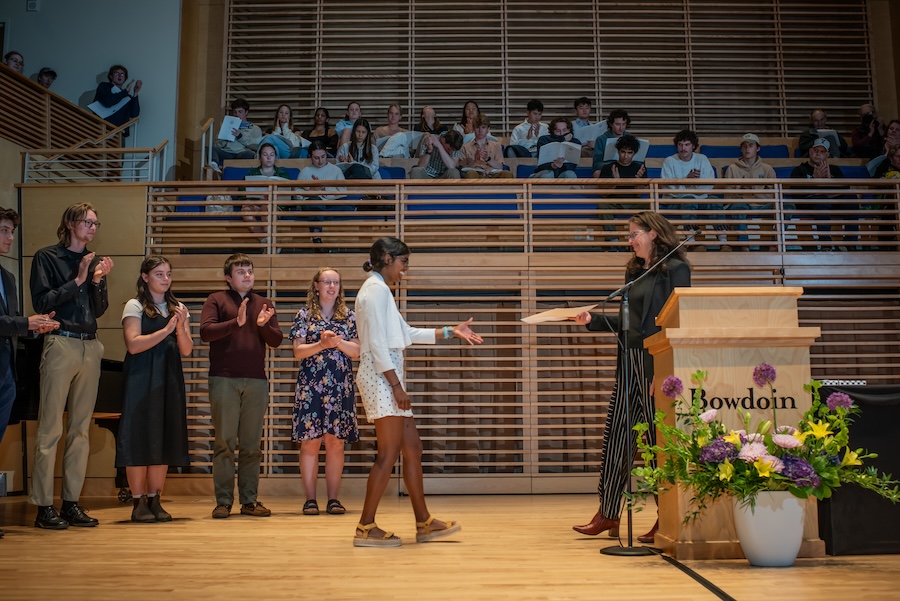
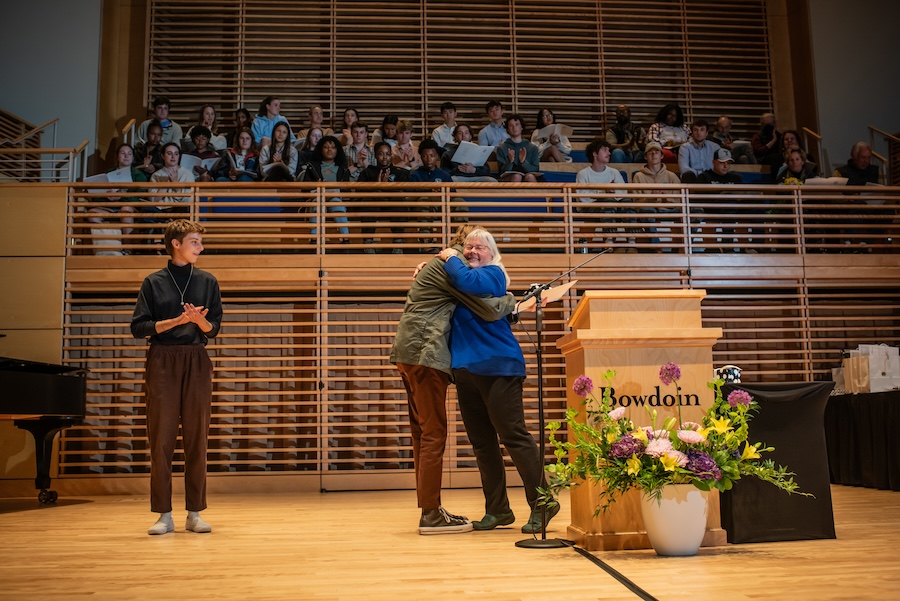
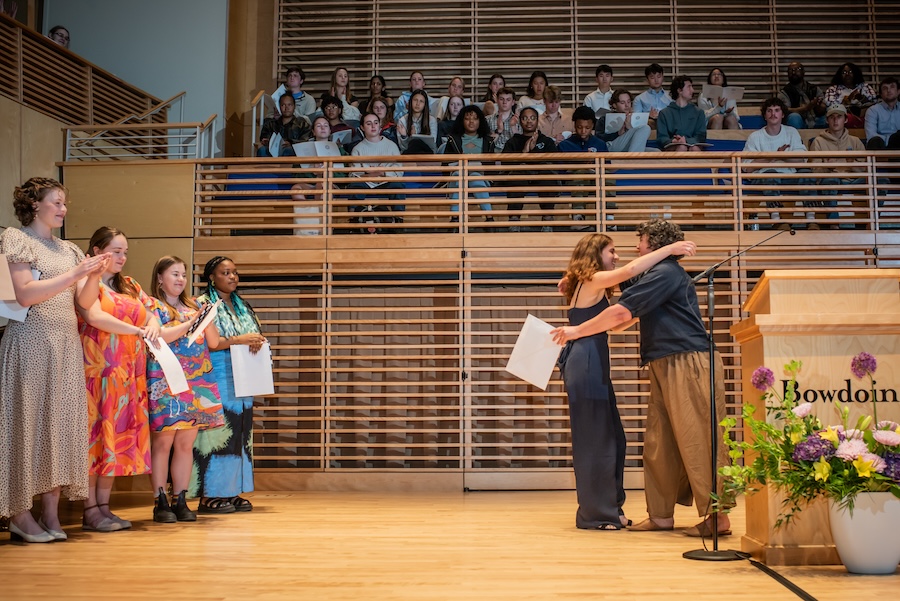
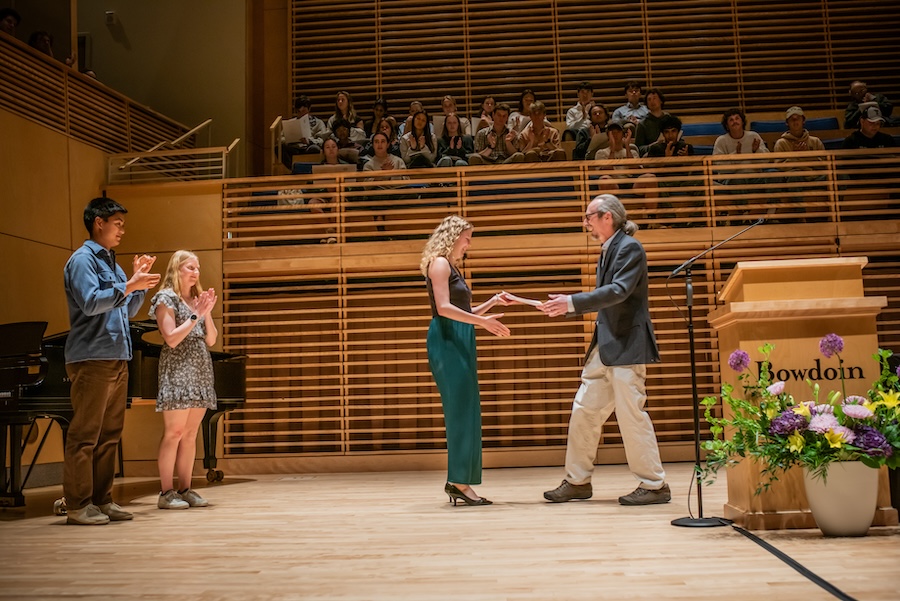
Following Matos's address, Scanlon announced the winner of the 2024 Karofsky Prize—Assistant Professor of English Samia Rahimtoola, a scholar of modern American literature and culture.
The musical interlude this year, Kegelstatt Trio K. 498, III. Rondeaux: Allegretto, by Wolfgang Amadeus Mozart (1756–1791) was performed by Darien Gillespie ’24 on oboe, Nancy Xing ’24 on viola, and Beckwith Artist-in-Residence George Lopez, who played piano.
Faculty chairs then presented departmental and program prizes to students in recognition of their scholarly accomplishments. See the complete list of honorees.
President Zaki offered a few closing remarks, telling the students how inspired and amazed she was by them, and she thanked the faculty, as well, for their care and teaching “that made this possible.”
“The collective level of achievement we're celebrating today is inspiring,” she said. “I hope you've all noted the range of interests, curiosities, and methodological approaches reflected in the work we're honoring here, work that is testament to the excellence and determination of these students.”
To conclude the evening, singers from Bowdoin a cappella groups, chamber choir, and chorus led the audience in Raise Songs to Bowdoin.
*The award is generously funded by members of the Karofsky family, including Peter S. Karofsky ’62, Paul I. Karofsky ’66, and David M. Karofsky ’93.